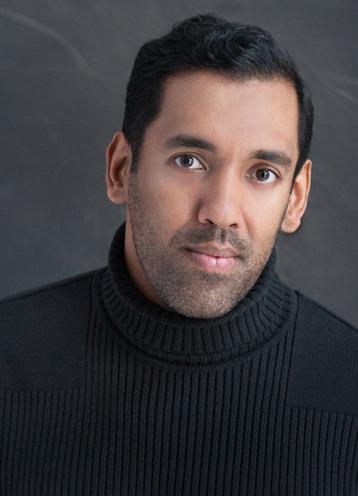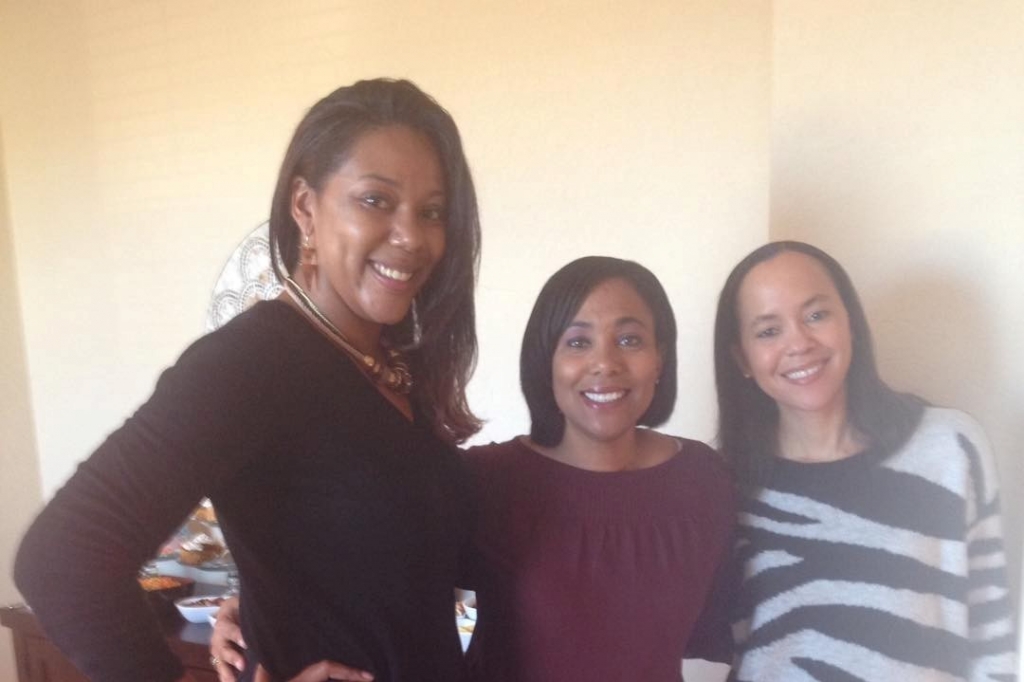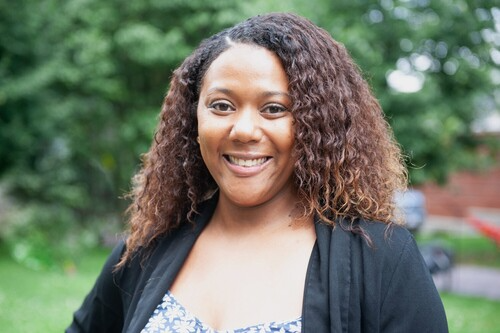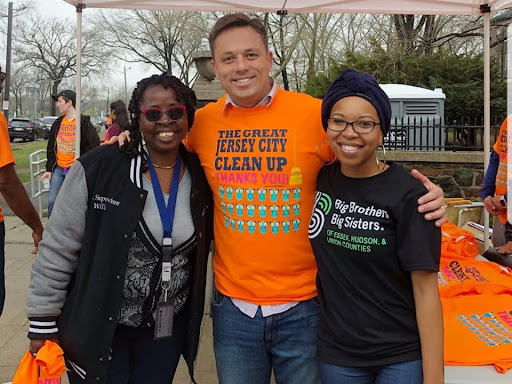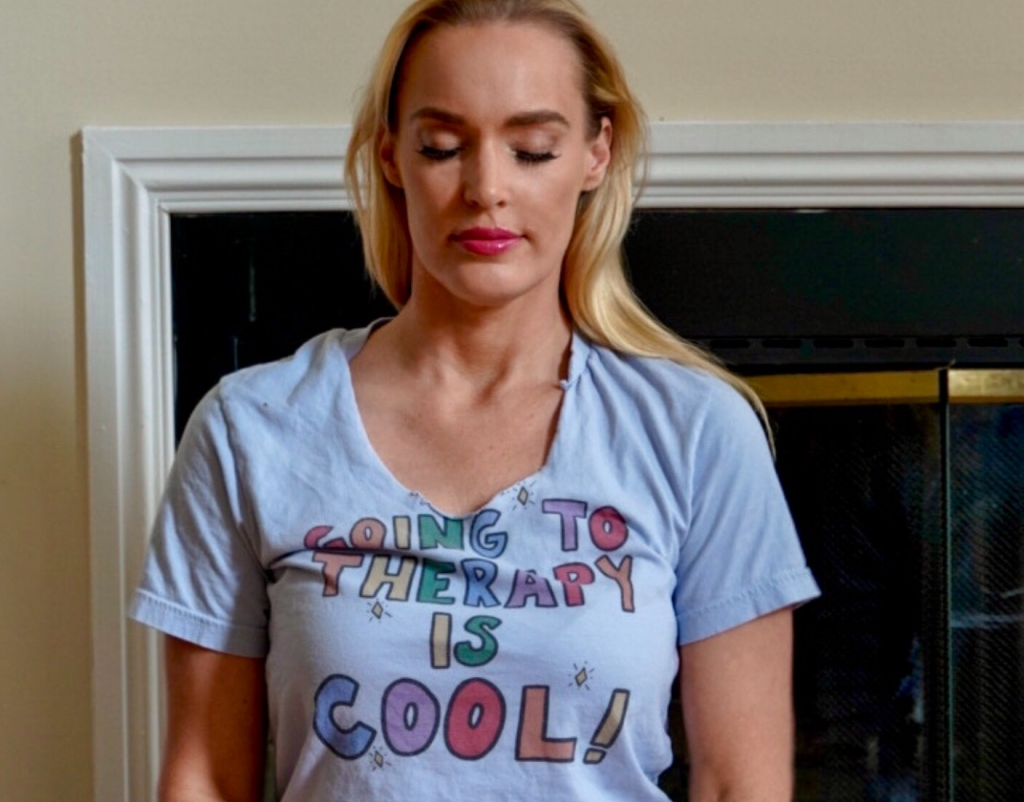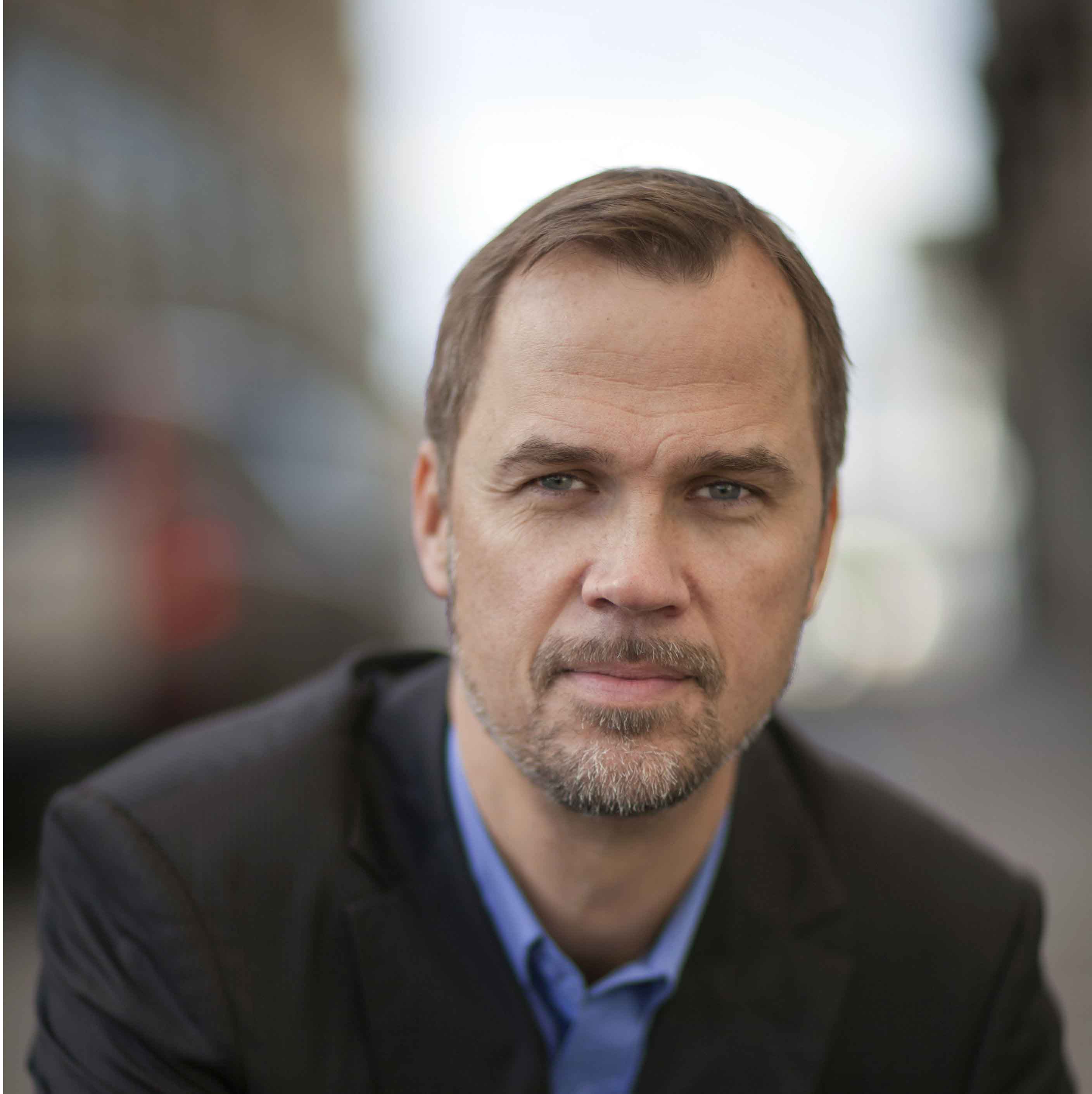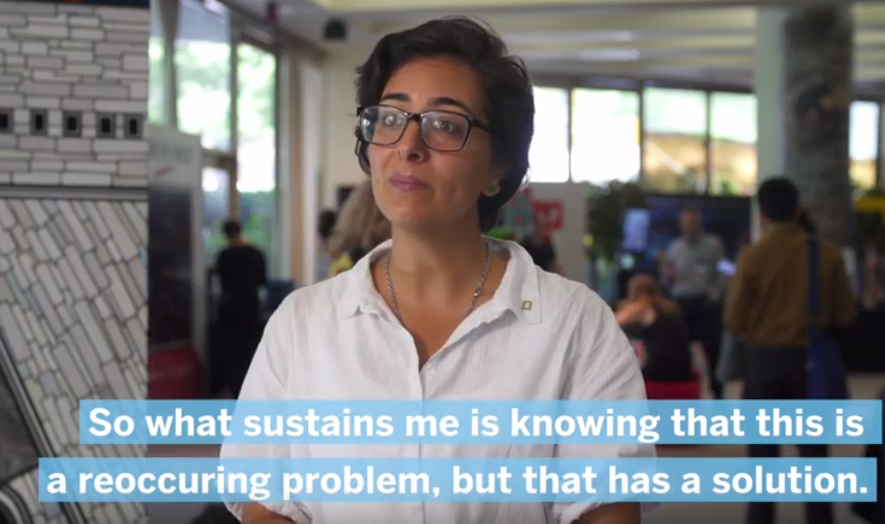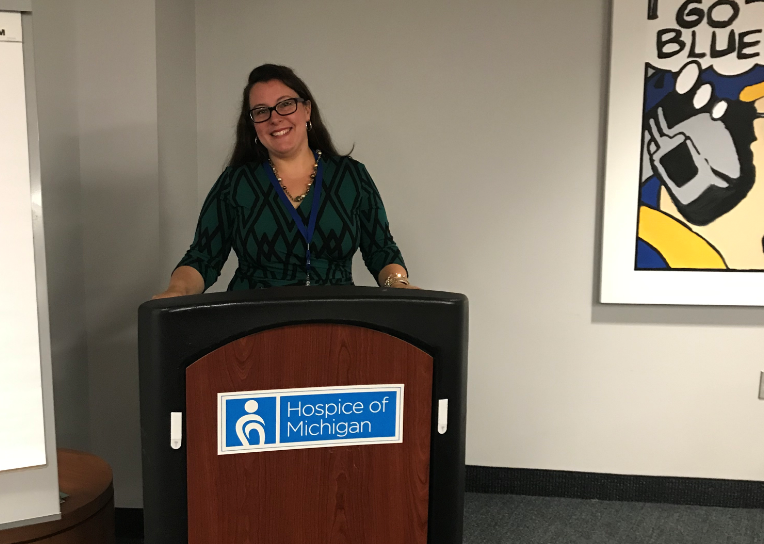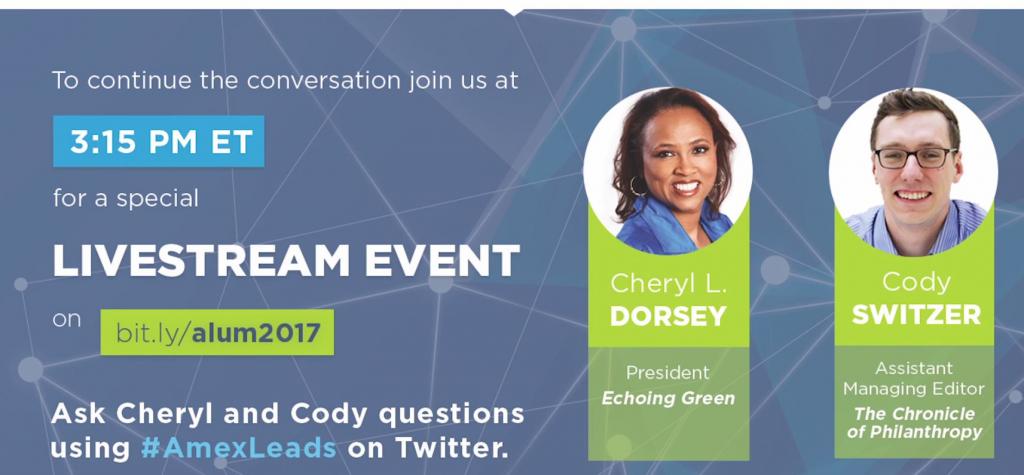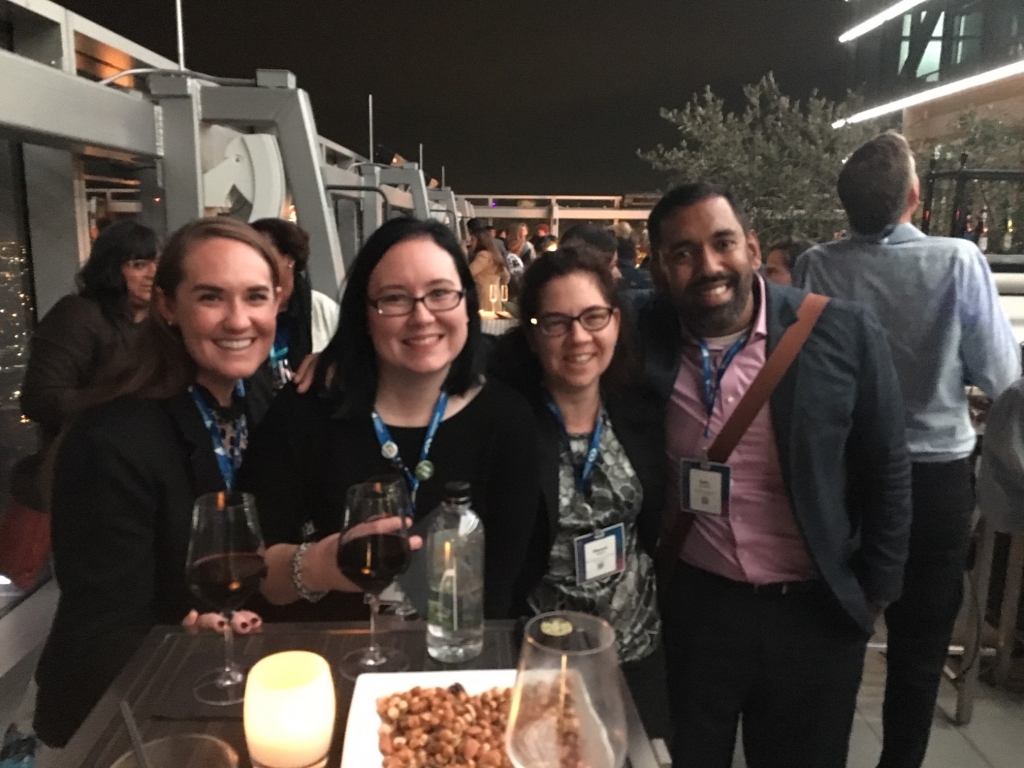
When you were a child and someone asked what you wanted to be when you grew up, I bet you didn’t say, “I’m going to be a nonprofit executive!” I certainly didn’t. I wanted to be a school teacher. But that’s not how life turned out for me – at least, not exactly.
In my role as founder of Oommen Consulting, a firm specializing in fundraising, events, and project management, I work with a variety of organizations and help raise money for life-changing causes. I get to challenge myself, expand my career and meet new people along the way.
This didn’t happen overnight. It’s taken me two decades working in the social-purpose sector to learn the tremendous amount I have – mostly the hard-knocks way! I’d like to share five insights and lessons I’ve learned so far that might help you or those you know who are looking to advance in their careers.
1. Our work is about change. That’s why we have to learn how to manage it. And then actually do it.
We work in the nonprofit sector to make a difference. To create an impact. To solve a problem. To transform people’s lives. However we phrase it, we are looking to move things or people from point A to B. That obviously involves some form of change.
However, I’ve often noticed how many nonprofit professionals resist the idea of change. It’s human nature, but in our field, it can create a major deficit in our ability to achieve what we tell our funders that we are all about. This resistance holds us back, and at best, keeps our nonprofits just puttering along and most of us cushy in our jobs year after year. But a safe job is not why I joined this field, and I am sure many of you would agree.
Once nonprofit leaders really embrace the idea of change, learn how to manage it, and actually act on it, only then can we start to make the change we sacrifice ourselves daily to achieve.
I had the privilege of being an American Express NGen Fellow through Independent Sector, and in this fellowship program I studied change-management by reading a book that I still refer to today: Leadership on the Line, by Ronald Heifetz and Martin Linsky. I highly recommend it for anyone who wants to become a leader to make a significant difference in your cause or passion.
2. It’s also about power. The world does not want to solve all its problems – yet.
At the same time, I have seen that despite all the pop-culture talk about wanting change, the world at-large often resists it. Think about it: if we wanted to solve the global hunger crisis, we could have done so by now. According to the powerful documentary, Wasted!, there is enough food produced in the world to satisfactorily feed everyone on the planet.
Why, therefore, are we not doing it already?
Because of who has power.
According to food-waste expert, Tristram Stuart, who was featured in the documentary, supermarkets occupy the top of the totem pole of power in our global food system. They control the vast majority of grocery sales in most wealthy countries, and if they wanted to coordinate in solving this problem, they could practically do so overnight. But, they clearly aren’t right now, for reasons you can discover through this documentary or other literature.
We can’t have a conversation about change without addressing power.
The point is this: there is a lot of talk now about power in the social-purpose sector, and rightfully so. We can’t have a conversation about change without addressing power. In general, those who have power prefer things to stay the same. Whether it is intentional or not, that means the same problems staying the same or even getting worse (e.g., income inequality, racial equity gaps.)
Even though this sounds dire, I am an optimist. There are examples of successful change movements that made a world-transforming impact – marriage equality in the U.S. and the near-eradication of polio around the world, to name just two.
I heard Leslie Crutchfield speak at Upswell recently about her new book, How Change Happens. It explores why some social movements succeed and others don’t. It’s worth a read.
The next time you get frustrated or wonder how you can really make a difference, remember who has the power and figure out how to persuade them to use their power and resources (which may entail their giving up power – a tough pill to swallow for most, but not impossible to have them agree) to make real and impactful change.
3. Look for experiences, not steps on a ladder.
It is hard work to climb up a career ladder. It is even harder in our field, where titles typically have no standard convention, and our organizations range so much in size, professionalism and scope that it feels more like a meandering path than a ladder.
American society teaches us to think that success in our careers is about rising through the ranks. I believed that for a long time, so I created my own version of a ladder: I charted a path to becoming a Development Director of a nonprofit and then ultimately up to Executive Director or Chief Executive Officer or President (did I mention the lack of naming convention?).
I reached the step of Development Director, and I enjoyed my experience at that level for years. But then I learned a lesson that changed my life: seek out experiences, not steps on a ladder that doesn’t exist anyway.
I figured this out through an insightful conversation. Several years ago, I was wondering about going into TV daily news production. I had this fantasy of putting on the headset, calling the cues for a live shoot, and producing compelling and educational news programs each night. I loved the idea of creating something from start to finish in one day. I shared this with a mentor. She asked me more specifically about how I felt when I thought about doing those things. Exhilarated. Energized. Motivated... She then asked me if there was anything in my current work that makes me feel that way.
A light went off: I felt that way when I worked on fundraising events. (I even got to wear the headset on the night of the big galas!) I realized that I was more fixed on the way the job had to look, as opposed to the experience I wanted to have.
Funny enough, I think that my experiences in the nonprofit world have allowed me to fulfill my life as a teacher, but not in the way I expected. As a consultant, I enjoy projects where I train and coach groups of board members, nonprofit executive directors, and fundraising staff. Give me a set of markers anytime – I channel my inner teacher when I call on raised hands and write on dry-erase boards!
4. Be proactive about your own professional development.
I worked as a full-time employee at a variety of non-profits ranging from small to large, local to international. There was one thing in common with all of them: in almost any role you’re in, you need to take your professional development into your own hands because no one is going to steer it for you.
You need to take your professional development into your own hands because no one is going to steer it for you.
This is not unique to the nonprofit sector; most of us are crazed keeping up with our emails and ever-growing to-do lists. Few managers in the nonprofit world actively focus on professional development for their employees, and even when we do, we are constrained by our own priorities and budgets. I learned to seek out my own professional development opportunities, and my supportive managers were more than willing to give me the time and budget. They probably were grateful I did the work of finding them for myself.
I had mentioned earlier my experience as an NGen Fellow. I found out about that opportunity from a friend’s Facebook post, advocated for it with my employer, and took personal time to complete the application. I also spent a decade serving on the board of South Asian Americans Leading Together and learned so much about nonprofit governance and leadership. Together they were some of the best professional development experiences of my life.
I also sought concentrated learning experiences, such as workshops and conferences. I particularly recommend conferences that are not narrowly focused on your field. I serve on the New York City chapter board of the Association of Fundraising Professionals and I still gain so much from its educational programming. But I also make it a point to experience conferences that cover more than fundraising.
I recently attended the Upswell convening in Los Angeles, and learned about areas of work that I would not come across organically. I had the chance to walk through Skid Row in downtown LA to learn how some intrepid nonprofits there are tackling the city’s homelessness problem. I also was inspired meeting a young asylum-seeker who had to scrounge for resources when he first came to the U.S. to figure out the asylum process and navigate life here. While some might have stopped once they took care of themselves, he cared deeply enough about other newcomers to share what he learned and helped create AsylumConnect, an online resource for his fellow LGBTQ asylum-seekers to integrate safely into their new homes in the U.S. I left the conference with my mind expanded and more perspective that enhances my work.
5. It’s not over yet.
I wanted to be a teacher and a television producer. I used to work inside nonprofit organizations. I now run my own consulting firm. Who knows, I might become an Executive Director or maybe take my career in another direction entirely. Regardless, I learned that being content with the moment is all we can do.
Sometimes the solutions we create now are meant only for the present.
This is a scary proposition for many, so it helps to acknowledge that sometimes the adventures and solutions we create now are meant only for the present. To drive this point home, I have often shared a short but compelling Harvard Business Review blog by Peter Bregman, Why the Best Solutions Are Always Temporary Ones, and now I share it with you. It is applicable to our careers, our causes, and even our personal lives.
Experiment, broaden your horizons, seek experiences that enliven you, and be smart about how change and power work. And if you fail, experiment again. It’s not over yet.
I welcome your feedback and questions. Please write me or visit my site to learn more about my work.

